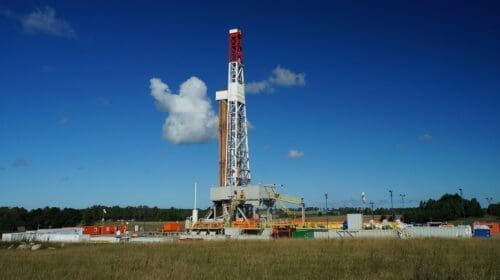As President Biden’s term nears its finish, his administration made history with its latest regulation punch against oil and gas companies. Aiming to reduce one of the most dangerous greenhouse gases, the new law was announced on Tuesday at COP29 and will direct oil and gas companies to pay a federal fine if they exceed certain levels of methane emissions.
The new Environmental Protection Agency (EPA) rule originated from the 2022 Climate Law and focuses on encouraging oil and gas companies to embrace more effective practices that ultimately reduce methane emission rates. Methane is the main ingredient of natural gas, a vital component of the LNG sector. With LNG’s high demand, Congress recognized a method to gain emissions reduction through financial pain.
Commonly referred to as a “super pollutant,” methane outperforms carbon dioxide in the short term and claims responsibility for approximately one-third of the greenhouse gases emitted into the atmosphere. With the natural gas sector alone producing the highest emissions rates in the United States, climate advocates reason that by reducing methane emissions, the effects of climate change can be decreased.
The new federal law, however, might see some political bruising with President-elect Donald Trump’s announcement naming former New York congressman Lee Zeldin to head the EPA when the new presidential administration enters the White House. Zeldin is expected to reevaluate this and many other environmental regulations that thwart achieving energy independence.
For now, however, the new regulation could result in a fee of $900 per ton that could rise to $300 per ton in 2025. The following year, however, the fee could increase to $1,500 per ton. Climate activists predict the opposition will more than likely challenge the new Biden rule.
The current EPA Administrator, Michael Regan, credits the oil and gas industry’s role in global warming. He said the fee “is the latest in a series of actions under President Biden’s methane strategy to improve efficiency in the oil and gas sector, support American jobs, protect clean air, and reinforce U.S. leadership of the global stage.”
Republican opposition has been growing due to earlier attempts made at reducing emissions. They maintain that the EPA acted outside its legal boundaries and established regulations the industry could not meet. The EPA responded that it remains committed to protecting the public and has always worked within its rights. Regan added a sizable portion of the oil and gas industry that already meets or exceeds methane emission-performance levels, so they will likely avoid paying the new federal fee.
While each side argues perspective, the American Petroleum Institute (API) expressed further disdain for tightening environmental regulation, saying the fee “hampers our ability to meet the growing energy needs of American families and businesses and fails to advance meaningful emissions reduction.”
Environmental groups countered with their arguments supporting the new fee. Maggie Coulter, an attorney at the Center for Biological Diversity, expects the Trump administration to undo current regulations but supports the notion of holding oil and gas companies accountable for methane leaks. With flaring and other techniques available and offering less expensive methods to remove methane, she feels companies are less likely to rectify leak sources.
“Ultimately, we know that curbing the climate emergency requires moving quickly away from fossil fuel extraction,” said Coulter. “The oil and gas companies doing so much damage to our climate should have to pay for the methane leaks they’ve so outrageously failed to fix.”
Nick Vaccaro is a freelance writer and photographer. In addition to providing technical writing services, he is an HSE consultant in the oil and gas industry with twelve years of experience. Vaccaro also contributes to SHALE Oil and Gas Business Magazine, American Oil and Gas Investor, Oil and Gas Investor, Energies Magazine and Louisiana Sportsman Magazine. He has a BA in photojournalism from Loyola University and resides in the New Orleans area. Vaccaro can be reached at 985-966-0957 or nav@vaccarogroupllc.com.
Oil and gas operations are commonly found in remote locations far from company headquarters. Now, it's possible to monitor pump operations, collate and analyze seismic data, and track employees around the world from almost anywhere. Whether employees are in the office or in the field, the internet and related applications enable a greater multidirectional flow of information – and control – than ever before.










